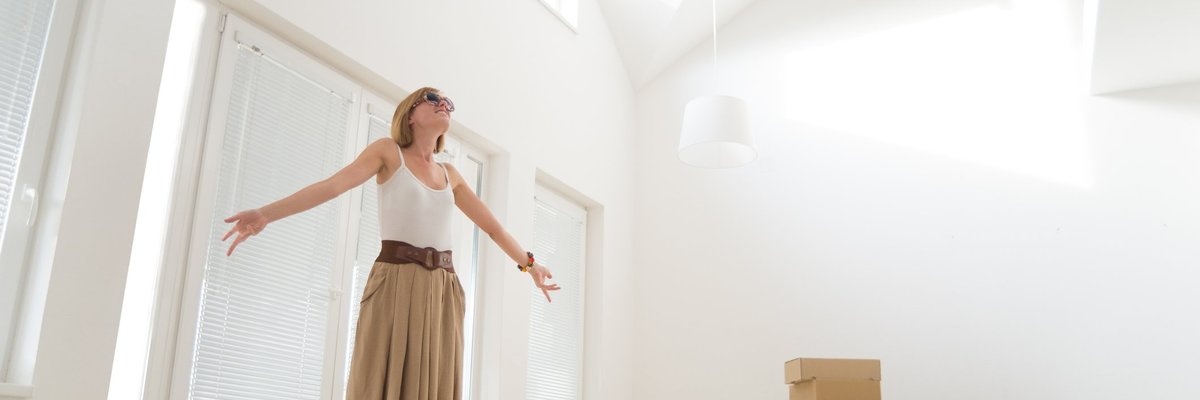I Want to Buy a House in a Few Years. Here's How I'm Preparing Now
KEY POINTS
- It's important to have a good handle on your income and expenses before you attempt to buy a house.
- Paying off debt raises your credit score and frees up income.
- Homeownership costs money right from the start, so saving up as much as you can is a good way to get ready for the purchase.
Wishing without planning won't make it so.
I've lived in rentals nearly my entire life, save for a small handful of years as a very young child and two years as an adult. I bought a house in the city where I was living and working in 2010, but following a job layoff and then a divorce, I became a renter again just two years later (and then went through a short sale on that property). I've lived all over the U.S., in apartments of all kinds as well as single family homes. I've moved 10 times in the last 10 years since I last had a house with my name on the deed.
If all of this sounds tiring to you as the reader, imagine how tiring it was for me to live it (and pack/unpack all those times). Thanks to a career change to remote work last year, I now get to decide where I want to live. I really like the city I've lived in for a year, so I'm dreaming of buying a home here in the next few years. I've got a plan to get me there, and I'm laying the groundwork right now.
Assessing my expenses and increasing my income
As a renter, my housing costs are pretty simple to figure out. I know how much I pay for rent each month (and that cost is secured on a yearly basis by the lease I signed), and I know how much my renters insurance premium costs me. I'm staying in my current home for now, and since I've spent a year here already, I already know approximately how much my monthly utilities will cost me. But I won't be able to initially anticipate the costs of homeownership with such confidence, as some of them will vary over time, and owning a home can be full of financial surprises in the form of repairs and maintenance. At this point, it's hard to know how much house I'll be able to afford in a few years. But by increasing my income now, I'm making sure I can keep my housing costs to 28% or less of my income.
Paying off debt and improving my credit
I'm spending 2022 paying off debt to give myself a clean slate. After years of financial setbacks, expensive out-of-state moves, and jobs that didn't pay enough for me to focus on the future, I'm finally in a position to make positive changes. This has the added effect of raising my credit score and lowering my debt-to-income ratio before I seek pre-approval for a mortgage. Getting out of debt and improving my credit profile will give me the best chance of qualifying for the most competitive mortgage rates.
Saving for a down payment and other expenses
The final part of my plan is to save money for a down payment and closing costs, as well as other miscellaneous expenses I might incur in the first year or so of owning a home. I want to make a 20% down payment so I can avoid paying private mortgage insurance and be a more attractive borrower to a lender. It's easy to use the internet to track the cost of homes in my neighborhood, so even though the housing market is hot right now, I have a rough idea in mind of how much money I'll need to save for that down payment.
My closing costs will likely be 2% to 5% of my future home's purchase price. And I'd like to have additional money put aside to cover any extra costs I might have right off the bat. A good rule of thumb for maintenance costs is to expect to spend about 1% of my future home's value each year to maintain it, and this could be higher for the lovely older homes in my small city.
For now, I've committed myself to keep renting for at least the next two years. But I'm hopeful that the work I'm doing now to shore up my finances, plan for homeownership costs, pay off debt, and save money will improve my chances of becoming a homeowner in a few years.
Our Research Expert
We're firm believers in the Golden Rule, which is why editorial opinions are ours alone and have not been previously reviewed, approved, or endorsed by included advertisers. Motley Fool Money does not cover all offers on the market. Motley Fool Money is 100% owned and operated by The Motley Fool. Our knowledgeable team of personal finance editors and analysts are employed by The Motley Fool and held to the same set of publishing standards and editorial integrity while maintaining professional separation from the analysts and editors on other Motley Fool brands. Terms may apply to offers listed on this page.



